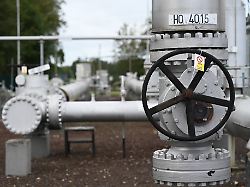20 billion euros expensive
Operators warn of an oversized hydrogen network
January 5, 2024, 3:40 p.m
Listen to article
This audio version was artificially generated. More info | Send feedback
Hydrogen is expected to replace fossil fuels in many economic sectors in the future. To achieve this, the federal government is planning a supply network thousands of kilometers long. But a study now raises doubts about how big this really has to be.
Future hydrogen demand in Germany could fall far short of what the country is anticipating in its plans to expand the gas network to transport the fuel. This emerges from a study commissioned by a group of gas and water storage operators.
A cornerstone of the federal government’s hydrogen strategy is a 20 billion euro, 9,700 kilometer long hydrogen core network. The plans of the transmission system operator FNB Gas from November last year expected hydrogen consumption of 279 terawatt hours (TWh) per year by 2032. However, the study presented by the storage group INES and prepared by the energy consulting firm Aurora assumes that hydrogen demand will only be between 73 and 123 TWh by 2030.
According to the Aurora study, border crossing points with imports of less than 10 gigawatt hours per hour (GWh/h) could be enough to meet this demand, compared to the 59 GWh/h envisaged in the FNB plan.
“The Aurora short analysis shows us how great the uncertainties still are in network planning and how great the risk is that excess capacities will now be developed that may never be utilized,” said Sebastian Heinermann, Director of INES. The INES members include Astora, which is part of the SEFE Group, VNG Gasspeicher, Uniper and RWE.
